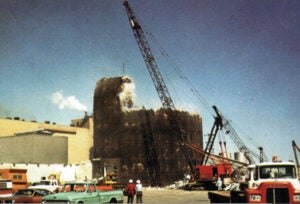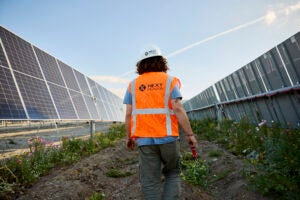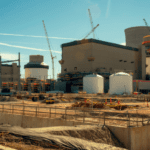Progress Energy Florida (PEF) on Monday signed a contract with Westinghouse Electric Co. LLC and The Shaw Group Inc.’s Power Group for the engineering, procurement, and construction of two nuclear units for a proposed nuclear power plant in Levy County, Fla.
The contract provides equipment, engineering, and construction services for two 1,105-MW AP1000 reactors. The next significant steps in the project are to finalize joint ownership agreements and to receive the Nuclear Regulatory Commission (NRC) schedule for review and approval of the company’s combined license application (COLA). Current plans would be for the units to be operational in the 2016 to 2018 timeframe.
A “Determination of Need” petition was unanimously approved by the Florida Public Service Commission (PSC) in July 2008, supporting the need to meet future energy requirements in Florida with nuclear power. A second filing, a Site Certification Application (SCA), was filed with the Florida Department of Environmental Protection in June 2008; a decision on the SCA filing is expected this year.
Progress Energy will retire the two oldest coal-fired units at the Crystal River Energy Complex in Citrus County after the new, advanced-design nuclear units are built in Levy County. Doing so will reduce the company’s carbon dioxide emissions by more than 5 million tons per year. This reduction will meet nearly 60% of the company’s responsibility toward achieving Florida’s 2025 emission-reduction target, it said.
The cost of the two new nuclear units is based on a contract price of $7.65 billion, plus forecasted inflation, owner costs, and contingencies. The company estimates the total cost for the two generating units to be approximately $14 billion. This estimate includes land price, plant components, financing costs, construction, labor, regulatory fees, and reactor fuel for two units. An additional $3 billion is estimated for the necessary transmission equipment and about 200 miles of transmission lines associated with the project. The final cost of the project will depend on the completion dates, which will be determined in large part by the NRC review schedule.
The majority of the project’s costs will be invested by the company and its shareholders and will not be recovered from customers through rates until the plant goes in service. However, starting this month, customers will begin paying for a portion of the costs of the project as approved by the PSC. This cost-recovery provision will ultimately save customers approximately $13 billion over the life of the plant by paying for the initial stages of infrastructure improvement and the interest on the loans to build the units as costs are incurred, rather than letting these costs accrue and escalate until the units are in service. Florida’s nuclear cost recovery legislation implements state energy policy by saving consumers money and providing annual oversight of all nuclear project expenses. This approach will allow Progress Energy to move forward with this important solution to meet Florida’s future energy needs with clean, carbon-free electricity, the company said.
Source: Progress Energy









